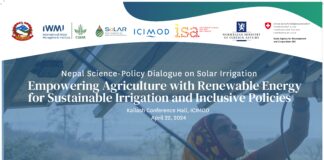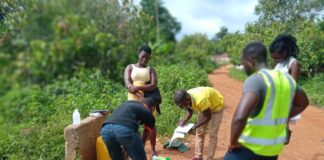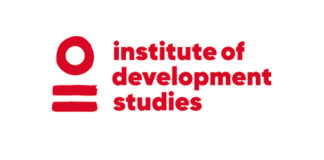Home 2024
Archives
Felix Opola
Felix worked as a PhD researcher in understanding the support for inclusive agricultural innovation in Kenya at Wageningen University in the Netherlands from 2017-2022.
Everisto Mapedza
Everisto was previously a Research Fellow at the London School of Economics and Political Science (LSE) (2003-2006).
Deepa Joshi
Deepa has worked primarily in South Asia and also in Southeast Asia, sub-Saharan Africa and Latin America. Before Joining IWMI, she worked at the...
Darshan Karki
Darshan is a researcher, writer, and editor with an interdisciplinary background encompassing geography, development studies, economics, and journalism. Prior to her current position at...
Ojongetakah Enokenwa Baa
Ojong is a Social Environmentalist with work experience in the fields of Gender, Sociology, Anthropology, International Relations, and Environmental Science. She worked as a...
Nepal Science-Policy Dialogue on Solar Irrigation
The Nepal Solar Forum will open a dialogue to reimagine Nepal’s modern irrigation programs through renewable energy.
Protecting Ghana’s Water Futures through Citizen Science
Women and youth empowered to foster responsible environmental stewardship in unique demonstration activity.
It takes a village: the Indian farmers who built a wall...
IWMI commissioned this article following fieldwork conducted on the political economy of policy processes in India, under the CGIAR Initiative on National Policies and Strategies.
The sanitation circular economy - rhetoric vs. reality
IWMI researchers call for a sanitation circular and solidarity economy which explores innovative economic solutions for the most basic of human needs in ways that are wired for inclusivity.











